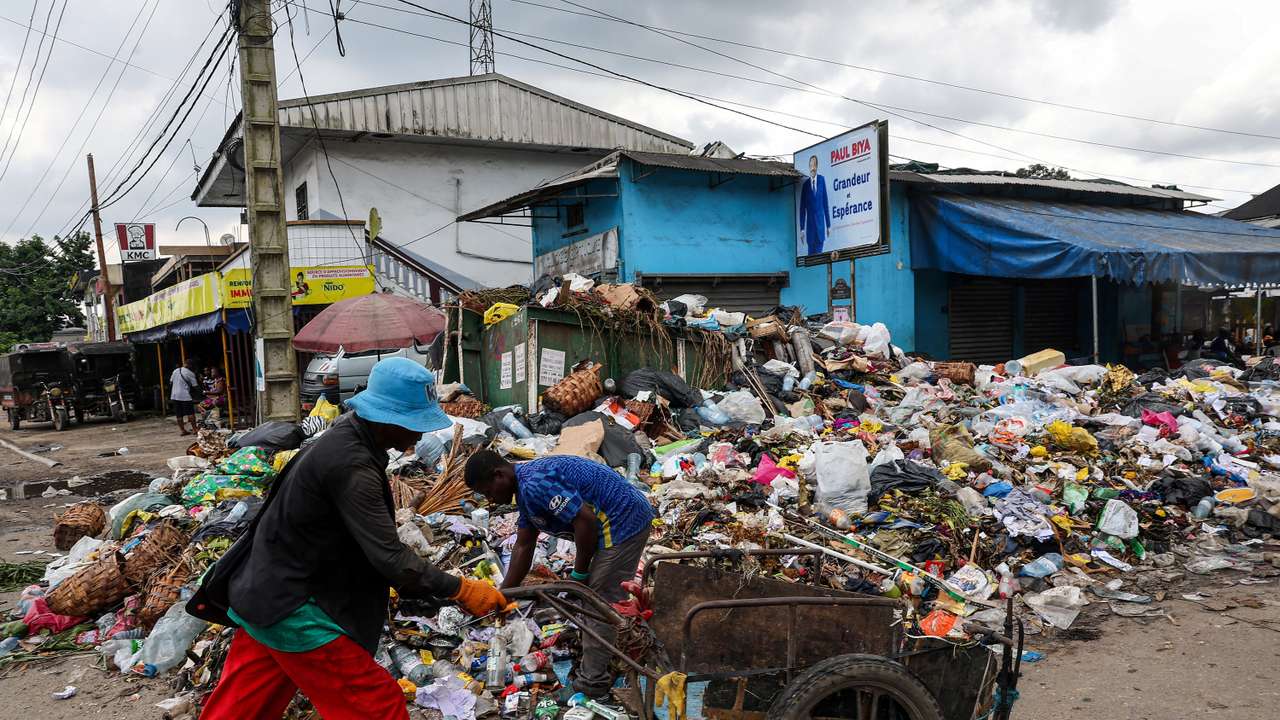After yet another election that seemed destined to preserve the status quo, many among Cameroon’s 29 million citizens expected their longtime leader, Paul Biya, to win again.
“It was very certain that Biya was going to clinch another victory,” said Amindeh Blaise Atabong, a Yaounde-based journalist who covers politics and society. “He has the apparatus.”
At 92, Biya is one of Africa’s longest-serving leaders and the world’s oldest head of state. Over 42 years in power, he has built a vast political machinery that critics say extends well beyond the bounds of legality — and deep into the electoral process itself.
Atabong said many Cameroonians have lost faith in the ballot box entirely. The International Foundation for Electoral Systems has described the country as an “electoral autocracy,” one that holds regular votes but fails to meet basic democratic standards.
Protests erupted even before the official proclamation of results, triggering violent clashes in Douala, Cameroon’s commercial capital, that left at least four people dead.
There were even reports from opposition candidate Issa Tchiroma Bakary, who finished second with 35.2% of the vote, of civilians outside his home being shot at hours before the announcement.
“It was very, very tense, and it has only gotten worse since then, especially after the proclamation of the results,” Atabong told Global South World.
Biya has acknowledged the post-election violence in a brief statement released online shortly after being declared the winner, in what was his first and only public comment since re-election.
As protests swell across the country, uncertainty now hangs over Biya’s new seven-year term — including whether he will even be able to see it through, which would leave him in office until just shy of his 100th birthday.
“It's possible,” Atabong said when asked if Biya could step down before the term ends. “We've seen that in other places in Africa, with the most recent example being Madagascar, where the president had to flee because of popular protests.”
“So, everything is possible. We can’t rule that out.”
Change or nothing
Biya is set to be inaugurated on November 6 in Cameroon’s capital, Yaoundé.
Atabong said the president returns to power over a country increasingly weary of the same leadership, with frustration especially high among the youth, a generation that feels locked out of opportunity and excluded from decision-making.
“The youth are really frustrated. Most of them are trying to leave the country. They are fed up with the system, which is mostly owned by octogenarians,” he said.
Now entering his eighth term, Biya faces a Cameroon under growing strain, from global shocks such as the wars in Ukraine and Gaza to domestic challenges including the long-running Boko Haram insurgency and deep linguistic divisions between the country’s English- and French-speaking regions.
With a 92-year-old president who frequently disappears from public view, questions are mounting over whether Biya remains fit to govern.
“Economically, the country is shrinking, there is bad governance, there is corruption, there is high level of unemployment, the cost of living is high, and we have not really capitalised on the transformation of most of our local resources,” Atabong said.
“All of that put together, it's a cocktail that can easily degenerate.”
Ruling for more than four decades has left Cameroon deeply dependent on Biya’s grip. Still, Atabong said many citizens are bracing for the inevitable instability that will follow his eventual exit, whenever that comes.
“There is no indication that he is ready to step down because after he modified the constitution in 2008, striking off the term limit, he is still free constitutionally to go in for another mandate after this current one, which he just won,” he said.
“People just want change, even if it means moving from bad to worse.”
What now?
For now, as Biya remains out of public view, opposition figures continue to contest the results of the October 12 election.
Tchiroma had called for a three-day national lockdown, urging Cameroonians to “let the entire country come to a standstill,” to show the world that “we are resisting and that we will not yield” and to remind the Biya government that “the strength of an economy is its people.”
However, following violent clashes outside his Garoua home, Tchiroma was reportedly forced to flee with the help of “loyalist army” members, a move that, if confirmed, could signal growing cracks within Biya’s own ranks.
“The way going forward, I think it will depend on a couple of factors. First of all, it depends on within the rank of the security forces,” Atabong said. “If that doesn't happen, then I think not long from now, the riots will grow. So, it all depends on the days ahead, how it's going to play out.”
Atabong also noted the muted reaction abroad. The African Union even congratulated the longtime Cameroonian president in a statement that also expressed concern over the post-election unrest in the country.
“Since Cameroon, and largely Africa, has been a diplomatic battlefield, most of the foreign powers are very cautious on how they go about relations with the incoming government,” he said.
“Big countries like the US, maybe Russia, maybe China, they will more or less end up at lip service and be more cautious about how they comment on the developments in Cameroon because they have their interest in the country,” he added. “For now, the international community is failing Cameroon.”
With just days to go before Biya’s November 6 inauguration, unrest continues to define the political climate. What unfolds in the coming days could determine not only the next seven years of Biya’s rule, but also whether Cameroon’s fragile calm can hold at all.
